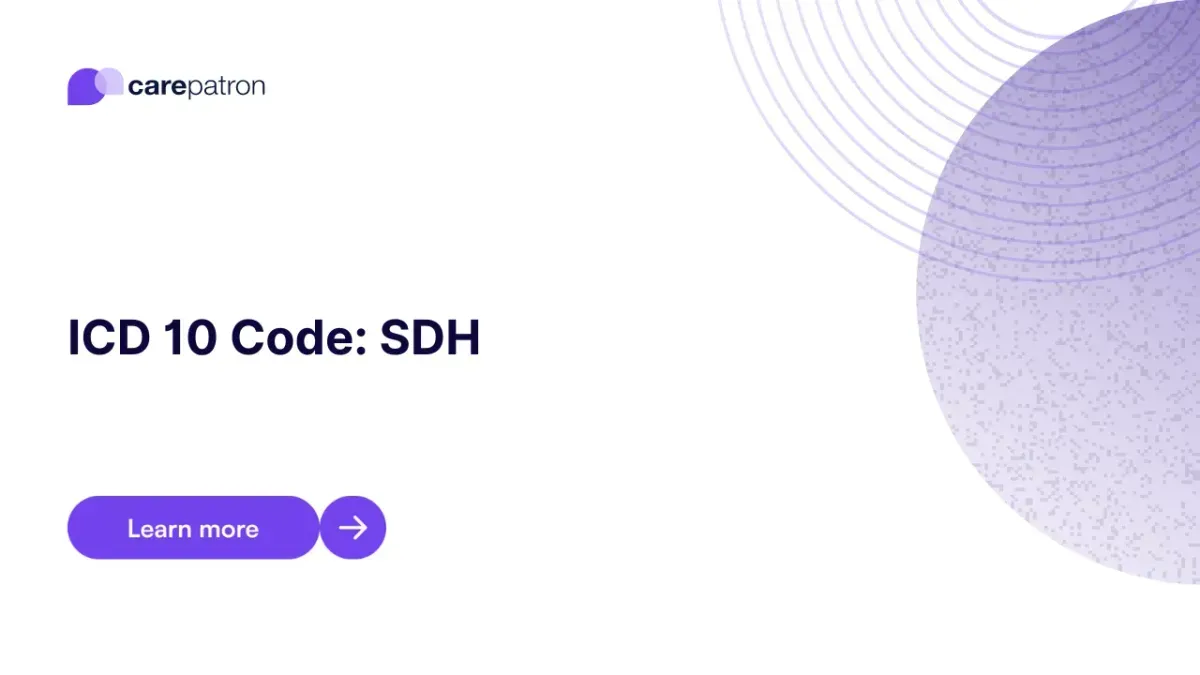
SDH ICD-10-CM Codes
Learn about the ICD-10 codes for SDH you can use and learn more about their billability, clinical descriptions, synonyms, etc.
Use Code
Commonly asked questions
You can use a SHD ICD code once you’ve determined if the subdural hemorrhage is traumatic or nontraumatic, identified the duration of loss of consciousness, and for traumatic, if it’s an initial encounter, subsequent encounter, or sequela.
All of the listed codes above are billable.
Common treatments are medication, burr holes, and a craniotomy.
EHR and practice management software
Get started for free
*No credit card required
Free
$0/usd
Unlimited clients
Telehealth
1GB of storage
Client portal text
Automated billing and online payments
